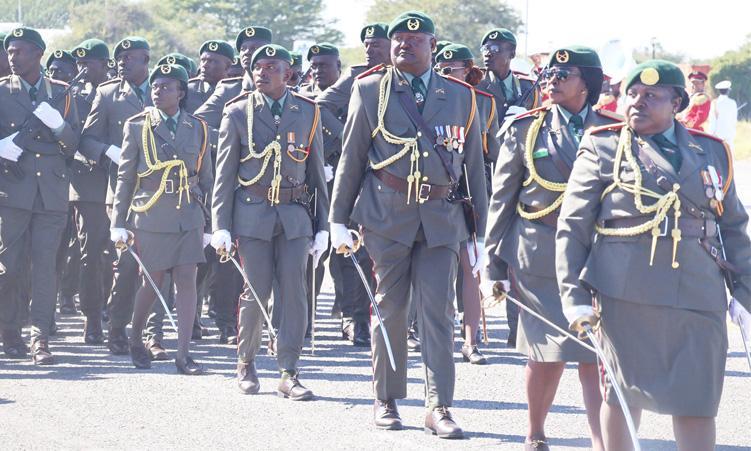Africa-Press – Namibia. Experts are calling the government’s latest security sector recruitment drive an attempt to tackle unemployment and boost public service delivery across the country.
This comes after prime minister Elijah Ngurare on Wednesday announced the government would recruit 1 800 individuals to the Namibian Defence Force (NDF).
Labour expert Sydwill Scholtz says the move is an attempt at alleviating the unemployment crisis the country is currently faced with.
The government recently announced a drive to recruit 4 310 new staff members countrywide.
Ngurare said the NDF is currently recruiting 1 800 new members, while the Namibian Police graduated 1 782 recruits on 23 May.
The Namibia Correctional Service has produced 278 graduates this year so far and is set to welcome an additional 450 recruits on 1 August, Ngurare said.
“We need to consider the ripple effect of these appointments, as it would mean that although the payments are made through the largest employer in the country, the tax income and fiscal position of the country would be improved and would allow for improved service delivery on these fronts, especially in as far as the correctional services and police force are concerned,” Scholtz says.
He, however, says while the recruitment drive would increase spending in the economy, it might also lead to strain on the current budget if proper planning and resource mapping have not been deployed.
“The focus on the security sector is not necessarily a dedicated focus, but would allow many new job entrants to explore areas they would become exposed to in the sector,” Scholtz says.
The government has been urged to leverage Namibia’s military personnel and infrastructure to support developmental efforts that directly improve the daily lives of Namibians.
Ernest Simataa, a management consultant, says Namibia continues to face pressing socio-economic challenges, particularly in underserved rural communities, where public service delivery remains constrained due to limited resources.
“While maintaining a capable force is undeniably essential for national security, it is equally vital that we fully leverage our military personnel and infrastructure to support development efforts that directly impact our citizens’ daily lives,” he says.
Simataa suggests that military-run hospitals, clinics and education support facilities be established in remote areas where healthcare facilities are non-existent.
“Deploy trained personnel to understaffed government hospitals, especially those with a background or potential in healthcare. Train soldiers as teachers and teaching assistants and deploy them to underserved rural schools.”
He says the government could also create specialised units within the NDF for minor road construction, emergency repairs and disaster response efforts.
“They can assist local and regional authorities in responding to floods, droughts and other emergencies by mobilising equipment and skilled personnel. Empower military bases to contribute to national food production, especially through organised farming projects that support food security and job creation,” Simataa says.
He says the government should refocus part of the military training curriculum on civilian-aligned professions such as medicine, engineering, agriculture and education to ensure service personnel can actively contribute to the country’s developmental goals.
“This approach is not unprecedented. Countries such as Egypt, Cuba, China and Rwanda have successfully involved their military in national development while maintaining readiness.
“By adopting a similar model, we not only build capacity within our armed forces but also deliver tangible services to the public, ensuring that every dollar spent on defence yields developmental value,” Simataa says.
Ngurare said president Netumbo Nandi-Ndaitwah is expected to sign the recently tabled 2025/26 national budget this week.
“Job creation and service delivery will be central in this financial year,” he said.
New Era in 2022 reported that the NDF said it should not be seen as a job creator, although it is the most effective insurance at the country’s disposal.
For More News And Analysis About Namibia Follow Africa-Press






